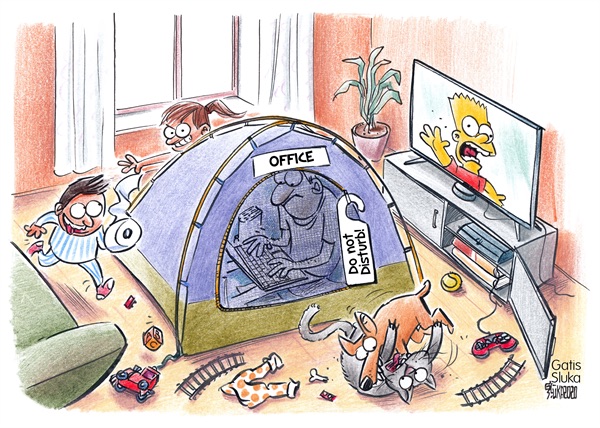Getting Through This Together
Helping Siblings Get Along During the Pandemic

Since the coronavirus outbreak, parents across the globe have been impacted in countless ways. With families cooped up for weeks on end, we’re all searching for better ways to deal with sibling conflict.
Like proverbial rats in a cage nipping at each other, it’s all too typical for kids to take their frustrations out on each other, saying things like:
• “Benjamin pushed me!”
• “Melissa won’t get out of the bathroom.”
• “It’s my turn to play on the tablet!”
In addition to overall levels of stress, family conflict happens more when kids don’t have tools to handle their feelings. Although sibling rivalry is normal, there are ways to improve your situation. With everyone at home, you have an opportunity to teach new social and emotional learning skills. Squeeze that lemon, and make some lemonade!
Here are some guidelines:
Identify the Issue
Many parents get lost in dealing with the content of sibling disagreements when it’s really the process that matters. In addition to a focus on rules — like how much time each child can handle the remote — what are the upsets that your kids have that can lead to disagreements about almost any issue?
Explain in a family meeting that, just like toys can break and need fixing, sometimes our relationships need to be repaired. We don’t throw a bicycle away when it’s got a flat tire or the chain has come off!
It’s important to put some attention into making things new again with people that we care about. It’s the unresolved feelings in families that result in conflict and break-downs, and persistent bickering is simply a signal that it’s time for repair by talking things out.
Model Good Listening
Good listening is a key to helping others let go of negative feelings. In fact, studies show that people report greater life satisfaction and fewer physical symptoms on the days when they feel more understood by others in verbal interactions. It helps us feel naturally more caring toward that person. By showing your child that you are actively listening, you will build respect, trust and a sense of mutual understanding.
Introduce the ‘Repair Kit’
When you need a tool to resolve conflict and smooth out a relationship, the following Repair Kit can provide an effective path toward forgiveness. It helps to bring out the best in others, and Dr. Mac’s research in elementary schools shows that kids as young as 5 years old can benefit.
If you and your partner could use a little tune-up, try using this same tool as well. Your own experience with the process allows you to best coach your kids. Rather than waiting for conflict to occur, first practice the skills in a family meeting at a time when things are going relatively smoothly.
Here are the activity steps: Person #1: Starts as speaker
Person #2: Starts as listener
Siblings should sit face-to-face so that their knees are almost touching. The speaker should avoid using words like you “always,” “never,” and “every time” because these words increase defensiveness. It’s also recommended that the listener take frequent deep breaths to avoid becoming upset and reactive. To start, Person #1 will share with person #2 the following:
• Express a genuine appreciation toward the other
“One thing I like about you is….”
• Express, to let go of, one upset toward the other, for example:
“It made me mad when you teased me about my shirt today.”
“I didn’t like it when…”
“I don’t like it when…”
• Express a desire about what you want in connection with the upset, such as:
“I want you to be nice to me.”
“I’d appreciate it if you would…”
After Person #1 completes the activity, reverse the flow so that Person #2 becomes the speaker and Person #1 becomes the listener. After a few rounds of going back and forth, a strong conclusion to the process is to share apologies with each other and share a hug or high five.
Use Songs to Ground These Ideas
As a psychologist who has specialized in the treatment of children and families for over forty years, Dr. Mac has an online course in parenting education. As a professional songwriter he has an award-winning series of songs and activities for character and
social and emotional learning. During these challenging times, he is offering two free songs that are an ideal companion to ground these concepts with kids 4 to 9 years old. Click here to download Talk It Out and In the Same Boat.
Getting Through This Together
Decades of research shows that healthy communication fosters strong loving relationships. Use this time to practice effective listening and the constructive expression of feelings. Despite increased stress, once you teach your kids how to use the repair kit, your family will emerge from this time more connected. Have some fun with it by adding music and laughter.
Don MacMannis, Ph.D. is a psychologist and co-director of the Family Therapy Institute of Santa Barbara.



